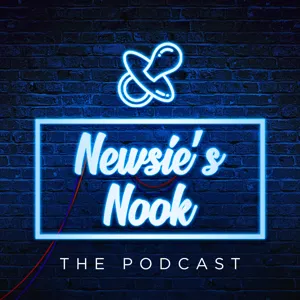Podcast Summary
Learning from Love and Loss: The Importance of Grieving: Grieving is a crucial process for healing after loss, involving learning to adapt to life changes and coping with acute feelings. Research reveals psychological and physiological effects, and therapy can help.
Grieving is a form of learning. After experiencing the loss of a loved one, individuals must figure out how to navigate the world without them. This includes adapting to major life changes and adjusting small habits. According to Dr. Mary Frances O'Connor, an expert on grief and associate professor of psychology at the University of Arizona, this process of learning from love and loss is crucial for healing. Using methods like brain imaging and studying immune system responses, researchers have begun to understand the psychological and physiological effects of grieving. Some people may struggle more than others with the acute feelings of grief, leading to complicated grief, a clinical condition. Grieving is also related to depression, but they are not the same. Effective therapy, such as cognitive-behavioral therapy, can help individuals cope with their grief. Even the death of a celebrity can elicit genuine grief, though it may differ from the grief experienced over the loss of a loved one. To best support someone during the grieving process, it's essential to be patient, listen, and validate their feelings.
Understanding the Differences Between Grief and Depression: Grief is an emotional response to a loss, while grieving is the process of adapting to it. They share sadness but differ in scope and duration. Depression is a global emotional state marked by worthlessness, guilt, and hopelessness.
Grief and grieving are two distinct concepts. Grief refers to the intense emotional response to a loss, while grieving describes the process of adapting to that loss over time. Although both involve feelings of sadness, they differ in scope and duration. Grief is a momentary feeling, while grieving is the ongoing process of adjusting to the loss. Moreover, while grief and depression share some similarities, they are not the same. Grief is characterized by yearning for a lost loved one, while depression is a more global emotional state marked by feelings of worthlessness, guilt, and hopelessness. A person can experience both grief and depression, but they can also experience one without the other. The loss of a loved one can feel like the loss of a part of oneself due to the strong emotional bond that forms in relationships. This connection is supported by research, including the work of psychologist Arthur Aaron, who studied the concept of "interdependence" in relationships. By recognizing the differences between grief and depression and understanding the emotional bonds that form in relationships, we can better navigate the complexities of loss and grief.
The bond with loved ones creates a 'we' in our neural representation: The loss of a loved one creates a profound neural void and complex grieving process, which can interfere with daily life in prolonged cases.
The bond we form with loved ones creates a sense of "we," which becomes deeply embedded in our neural representation. This "we" becomes an integral part of our functioning in the world, and when that person is no longer present, we experience a profound sense of loss. This is not just a metaphorical hole in our heart, but a literal void in our neural representation. This concept can be observed in conditions like phantom limb syndrome, where the brain continues to expect the presence of a missing limb. After a loved one's passing, the brain undergoes extensive changes, including the rewiring of neurons and the release of stress hormones and neurotransmitters. These changes take time to occur, and the process is complex, but it is a necessary part of the grieving process. Complicated grief, or prolonged grief disorder, is a condition where the grieving process lasts for an extended period and interferes with daily life. It is different from everyday grief as it persists longer and causes significant impairment.
Understanding Complicated Grief: Complicated grief involves derailing thoughts and behaviors that hinder the healing process. Interventions, like those developed by Cathy Shearer, help individuals develop new skills to overcome complications and progress in their grief journey.
While grief is a natural response to loss, complications can arise, leading to prolonged and debilitating distress. The term "complicated grief" highlights these complications, which may include derailing thoughts and behaviors that hinder the healing process. Interventions, such as those developed by Cathy Shearer at Columbia University, aim to support individuals in developing new skills to overcome these complications and get back on the healing trajectory. These interventions do not aim to stop the grieving process, but rather to address specific challenges that prevent progress. By focusing on the loss and encouraging exposure to memories, individuals can learn to move in and out of feelings of grief, ultimately finding a way to restore meaningful life.
Healing from grief goes beyond dealing with loss: Effective grief therapy involves accepting emotions, engaging in new experiences, and learning to regulate feelings to help the brain adapt to life after loss. Avoidance can hinder the process.
Effective grief therapy involves more than just dealing with the loss itself. It's also about learning to accept and regulate emotions, and engaging in new experiences to help the brain adapt to life after loss. Avoidance of reminders or situations associated with the deceased loved one can lead to a spreading of avoidance and hinder the learning process. Therapies can help identify new possibilities and provide support and encouragement for trying new behaviors. The 5 stages of grief model, while influential, doesn't accurately represent the complex and non-linear nature of grief. Grief is a multifaceted experience that includes emotions like anger and depression, but their expression and intensity can change over time. It's essential to recognize the distinction between grief, the natural response to loss, and grieving, the process of coping with that response. Elizabeth Kubler Ross's groundbreaking work in the 1960s provided valuable insights into the grief experience, but it's important to remember that grief is a complex and individual process that requires understanding and support from loved ones.
Complexities of the grieving process: The grieving process is not a straightforward trajectory and can resurface during significant milestones or with ambiguous loss, requiring patience and understanding.
Grieving is a complex process that doesn't follow a straightforward trajectory, even in the case of clear cut deaths. While we may move towards acceptance over time, there are moments, such as anniversaries and holidays, where yearning and grief may resurface. This doesn't mean that the grieving process is going in the wrong direction, but rather that people are more aware of their grief during these times. Furthermore, the concept of ambiguous loss, where a loved one is physically absent but mentally or emotionally present, adds another layer of complexity to the grieving process. The attachment belief that the person will always be there for us, even in their absence, can cause disorientation and prolong the grieving process. Overall, the grieving process is not a simple stair step progression, but a complex and ongoing experience that requires understanding and patience.
Intense emotions towards celebrities' deaths: Parasocial grief connects us deeply, loss of a celebrity can lead to long-term emotional consequences, and disparities in grief can impact marginalized communities.
Parasocial grief, the intense emotion felt towards celebrities who pass away, is a meaningful connection that provides access to our inner emotions and can be associated with significant moments in our lives. It's a form of bonding, and when a celebrity dies, we lose someone who understood our perspective during that particular time. Grief and bereavement are health disparities, meaning they disproportionately affect different communities, with minoritized groups experiencing higher rates of caregiver deaths during the COVID pandemic. This disparity can lead to long-lasting emotional consequences.
Supporting grieving with cultural sensitivity: Understand everyone grieves differently, provide resources, be present, and offer flexible support to promote health equity.
Promoting health equity in the context of grieving requires a thoughtful and culturally informed approach. This may involve providing resources and opportunities for grieving in a healthy way, such as grief education in schools and culturally informed apps. When supporting someone who is grieving, it's important to understand that the goal isn't necessarily to cheer them up, but rather to be present and allow them to process their emotions. Being with a grieving person and acknowledging their experience can be more helpful than trying to change their state. Additionally, it's important to remember that everyone grieves differently, and what works for one person may not work for another. Being open and flexible in our approach can help us better support those who are grieving. Finally, it's important to remember that even well-intentioned words or actions can sometimes miss the mark. Being honest and transparent about our intentions and offering a range of options for support can help build trust and facilitate a more meaningful connection.
Exploring the complexities of grief through neuroimaging studies: Neuroimaging studies can reveal insights into the momentary experience of grief, but more research is needed on its evolution over time to offer better support and resources for those dealing with loss
Understanding the complexities of grief and recognizing that it's a process can help us be more compassionate towards those going through it. Neuroimaging studies have provided insights into the momentary experience of grief, but there's a need for more research on how it evolves over time. By scanning individuals multiple times during their grieving experience, researchers could shed light on typical trajectories and identify patterns of acceptance and yearning. This knowledge could lead to better support and resources for those dealing with loss. Remember, everyone's grieving process is unique, and providing extra care and understanding goes a long way.





